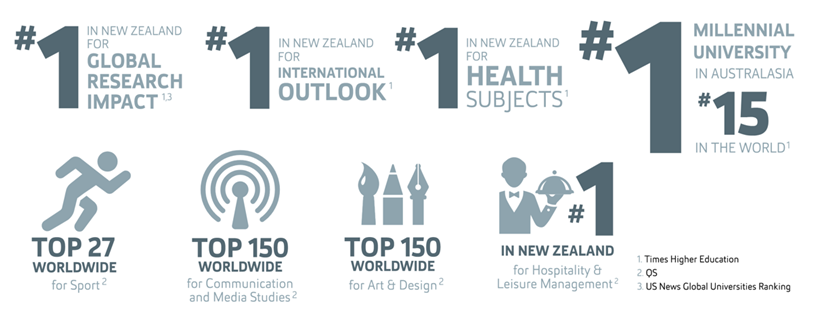Doctor of Philosophy L10

Doctor of Philosophy L10
The Doctor of Philosophy (PhD) is the University’s highest qualification. The degree is undertaken by research only and leads to advanced academic and theoretical knowledge in a specialist area.
The PhD is suitable for students who want to pursue an academic or research career, or a senior position in the public or private sector. Doctoral studies present you with the opportunity to generate new ideas that can benefit business and society. You will make a significant original contribution to knowledge and understanding in your field of study and meet recognized international standards for your work.
Modules
Doctoral students will attain the knowledge, values and attributes to make significant contributions to their professional communities and societies through further high-quality research, and developments.
Stage 1
You put together a proposal that critically reviews work done in your area of research. This requires a suitable research methodology and a timeframe for completion of the degree.
You are expected to publish one or more courses for a reputed international conference in your chosen area of research.
Stage 2
Once you have completed your research proposal, you refine your design, collect data and conduct your research as appropriate.
Data is collected and analysed and the results are published at international conferences. A journal publication is also encouraged at this point.
Stage 3
The first step in the final stage of the PhD is finalising the data collection and analysis. You then write your PhD thesis and submit it to the supervisor for feedback. It could take two or three drafts before the thesis is ready for submission and examination.
Skills you will develop
The outcomes for graduates of the Doctor of Philosophy are outlined in the Graduate Profile.
What will I learn?
A graduate of the Doctor of Philosophy will undertake advanced research, develop their careers personally and professionally, make significant contributions to societies and obtain (but not be limited to):
a. Advanced specialist/discipline knowledge that makes an original contribution to a particular field of enquiry and as appropriate to local and global communities.
b. A mastery of a body of knowledge, including a high level of understanding of conceptual and theoretical elements, in the field of study
c. A high level of understanding and appreciation of the philosophical basis, methodologies and characteristics of scholarship, research and creative work in their field of study.
d. An advanced ability to analyse information where relevant, using appropriate tools, technologies and methods.
e. An advanced capacity for critical appraisal of relevant scholarly literature/knowledge.
f. An advanced ability to initiate, design, conduct, sustain and report research.
g. Personal, professional, intellectual integrity respect, and understanding of the ethical dimensions of research and scholarly activity and where appropriate demonstrate understanding of the Treaty principles in practice.
h. A critical understanding and appreciation of the acquisition of knowledge and professional learning for work practice.
i. Significant expertise through the research, practice/ work, leadership or management roles in their field of study.
j. An advanced capacity to communicate ideas effectively to a range of audiences inside the field of study or discipline and to the wider community.
k. Confidence and knowledge to make critical commentary on relevant and topical issues in
their field of study.
<ul>
<li>Are under the age of 20 years; and</li>
<li>Are a citizen or permanent resident of New Zealand or Australia; and</li>
<li>Don’t meet the University Entrance standard; and</li>
<li>Have received secondary schooling to at least New Zealand Year 12 level (or its equivalent overseas) and completed NCEA Level 2 endorsed with Merit or better. This should include at least 14 credits in each of 4 NCEA Level 2 subjects, at least 3 of which must be on the approved subject list; and</li>
<li>Meet the UE literacy and numeracy standards, or their equivalents; and</li>
<li>Have not completed Year 13 at a New Zealand secondary school; or</li>
<li>Applications will be considered on a case-by-case basis. Applicants must also be selected into the programme for which they have applied.</li><br>
<p>*waived for Year 13 students at a New Zealand secondary school in 2020, due to the impact of COVID-19.</p><br>
<p>Cost of applying for Discretionary Entrance There is a non-refundable assessment fee of $50.00.</p>
<b>IELTS Academic</b>
<ul>
<li>IELTS (Academic) 6.5 overall with a minimum score of 6.0 in each band </li>
</ul><br>
<p>Other recognized English language requirements</p>
<p>Use the following table to see what you need to meet the English language requirements through the Language Cert International ESOL, Trinity ISE, Certificate in English for Academic Study (CertEAS), New Zealand Certificate in English Language (NZCEL), GIE, TOEFL iBT®, Cambridge English: Advanced (CAE) or the Pearson Test of English.</p><br>
<img src="http://ecert.edvantageinternational.com/wp-content/uploads/2021/06/01-d.png"><br><br>
<img src="http://ecert.edvantageinternational.com/wp-content/uploads/2021/06/01-e.png">
<li>1 Nov 2021</li>
<li>1 Feb 2022</li>
<li>1 May 2022</li>
<li>1 Aug 2022</li>
<li>1 Nov 2022</li>
</ul>
<p>Applications will be processed up to the start of the semester depending on programme availability. We recommend applying as soon as possible to have the best chance of securing a place in your preferred programme.</p>
<b>Late applications –</b>
<p>if your application arrives after the dates above Your application will be processed if places are available in the programme.</p><br>
<p>If there are no available places, your application will automatically be processed for the following intake, and you will be advised accordingly.</p><br>
<p>Contact us at ecert@edvantageinternational.com for further information</p>
<li>Online</li>
<li>Blended Learning</li>
</ul>
<p>Contact us at ecert@edvantageinternational.com for further information</p>
<p>AUT offers some of the most comprehensive student services and support in New Zealand – so you know you’ll be well looked after when you study here. Our academic staff are passionate about their subjects and at the forefront of their disciplines.</p>
<p>Many of them are internationally known as experts in their fields, and organisations around the world draw on their expertise for key projects.</p>
<li>City Campus</li>
<li>North Campus</li>
<li>South Campus</li>
</ul>
<p>We provide a One-Stop-Shop solution servicing all your needs from</p>
<ul><li>Admission application</li>
<li>Tuition fee payment, </li>
<li>Visa application (for your next On-campus course),and</li>
<li>Other destination services - insurance, forex, accommodation arrangement etc.</li></ul><br>
<p>through our parent company EdVantage International Consulting Limited. </p><br>
<p>Enjoy FREE or Discounted services when you book through EdVantage E-Cert!</p>
<p>Book your Foundation or Pathway course today on Edvantage E-cert.</p>

AUCKLAND UNIVERSITY OF NEWZEALAND
AUT is the second largest university in New Zealand. We have been a university since 2000, but a place of learning for 120 years and operate in accordance with the Education Act (1989).
We’re proud to be one of the world’s best modern universities – Times Higher Education has ranked us as the top millennial university in Australasia and we’re in the top 1% of universities in the world.
When AUT became a university in January 2000, it had a clear vision: to provide its students with exceptional learning experiences, and send them into the world as outstanding graduates. This student-centred vision has guided AUT’s development over the past 20 years.
Now, more than 29,000 students from 137 countries study at AUT across our three campuses in Auckland’s central business district, on the North Shore and in Manukau, making us one of the largest universities in New Zealand
Why study with us?
A world-class university environment
We’re proud to be one of the world’s best modern universities – Times Higher Education has ranked us as the top millennial university in Australasia and number 15 in the world. We have an overall five-star rating from university rankings organization QS, in addition to five star ratings for Teaching, Employability, Research, Inter nationalization, Facilities, Innovation and Inclusiveness.
We have been a university since 2000, and are now the second largest in the country and ranked among the top 1% (251-300) of universities in the world.
Study with us and you can enroll in our range of world-ranked subjects, which include New Zealand’s top-ranked health programmers and one of the world's best sport science school. Study both business and computer and information sciences, and prepare yourself for a wide range of careers in as little as four years.
An innovative teaching and learning space
AUT’s three modern campuses have several award-winning buildings which were created using sustainable principles and feature inviting, collaborative and functional learning areas, auditoriums and research spaces. This includes the state-of-the-art Engineering, Computer and Mathematical Sciences building, which has unique design features that mean it can be used as a teaching tool and ‘living lab’ where students can get hands-on experience.
World-leading staff
Our academic staff are research-active and at the forefront of their disciplines. Many of them are internationally known as experts in their fields, and organisations around the world draw on their expertise for key projects.
Innovative and relevant research
AUT is ranked first in New Zealand for global research impact (the number of times our research is cited by academics globally) by Times Higher Education and the US News Global Universities Rankings.
We have more than 60 research centres and institutes delivering leading research – from space research to artificial intelligence and robotics, and ecology to physical activity and nutrition.
Accreditation/ Recognition
AUCKLAND UNIVERSITY OF TECHNOLOGY
World Ranking




